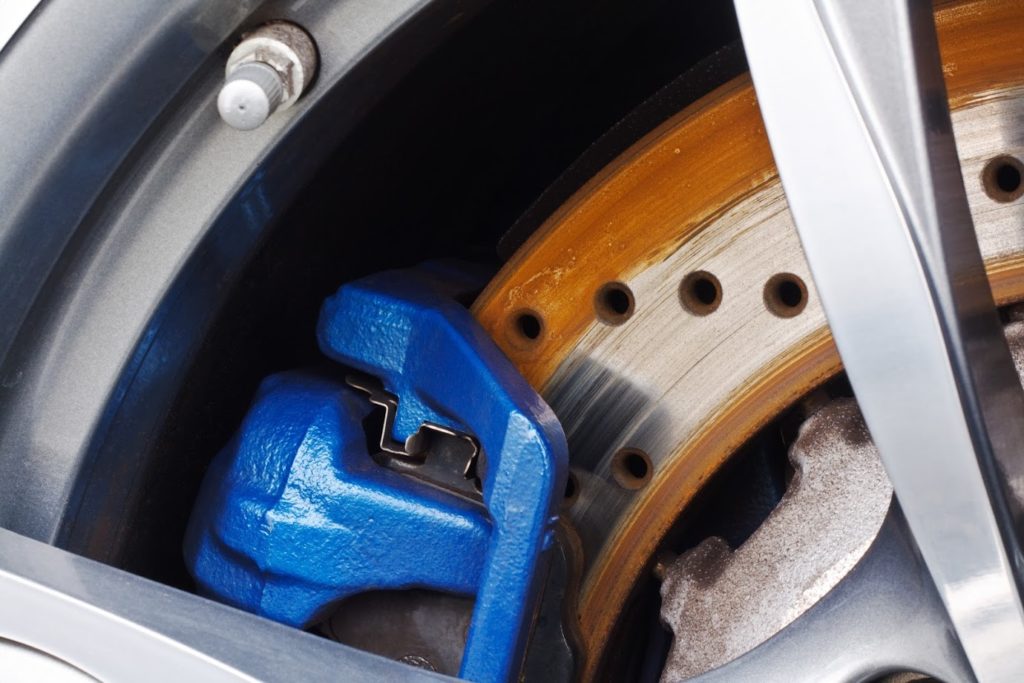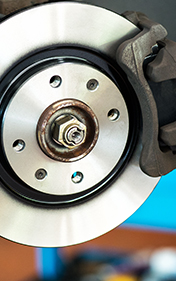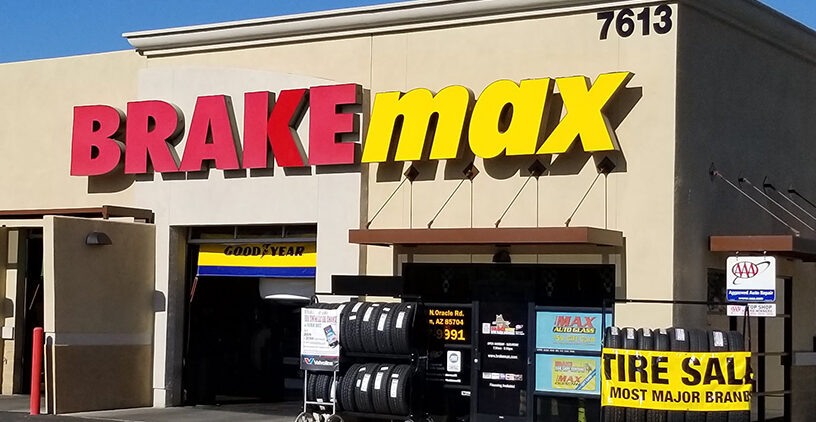How High Temperatures Affect Your Brakes

Arizona is known for its high temperatures. During the summer and even into the fall months, temperatures reach over 100 degrees Fahrenheit. Some drivers may find that their brakes don’t work as well on Tucson’s hot roads. What exactly is the blistering weather doing to your brake performance? Here’s some information about brakes and high heat.
Brakes Get Hot No Matter the Weather
Your brake system creates friction to make your vehicle stop. When you press on the brake pedal, brake fluid moves through the brake lines to the brake piston calipers. The expanded fluid forces the brake calipers to compress around the brake rotors, which makes the vehicle slow down and then stop.
One driver recently demonstrated how hot brakes can get during normal operation. YouTuber Jason Fenske set his vehicle up on jack stands, put the car in gear, and then used a thermal camera to gauge the temperatures on the brakes when the emergency brake was activated.
During Fenske’s testing, the rotors in his car reached 280 degrees Fahrenheit, but Fenske states that brakes on racing cars and other hardworking vehicles can potentially heat up to 500 degrees Fahrenheit. Since brake systems operate by converting kinetic vehicle energy into friction-based heat, the higher the heat created by the brakes, the better stopping power the brakes have.
Brakes Need Heat Dissipation
The high heat that develops in vehicle brakes damages brake parts over the long haul. If your brakes grow extremely hot, and the heat cannot escape from the brakes, your brake system is prone to damage, unreliable performance, and eventual failure.
damage, unreliable performance, and eventual failure.
When hot weather is added to the mix, the components in your brake system have an even greater chance of failure. For example, your master cylinder can heat up to excessive levels on extremely hot days if heat can’t escape from under the vehicle’s hood.
Overheated master-cylinder bores (that carry brake fluid) expand a bit and may allow brake fluid to bypass the now-loosened seals in the bores. Your brakes will feel soft or spongy and lose braking power if brake fluid leaks around brake system seals.
If your vehicle is equipped with lightweight brake components, the lighter rotors and calipers don’t contain enough material to dissipate heat effectively. Brake fluid begins to boil from the constant heat exposure, which reduces braking power as the fluid loses its viscosity (this process is sometimes known as brake fade). Under extremely hot operating conditions, lightweight rotors and calipers experience metal fatigue and crack or fail prematurely.
Upgraded Brake Components Preserve Braking Power
Drivers who navigate in extremely hot temperatures can upgrade their brakes to have better brake protection and performance. Since the road conditions in Arizona reach extreme levels, consider installing race-car-quality brake components on your vehicle.
Choose ceramic or stainless steel brake rotors as replacement brake components, since both materials have a higher tolerance for heat than aluminum and other materials. Ceramic pads retain less heat than other types of brake pads, and they help dissipate heat to the rotor.
Semi-metallic brake pads combined with cross-drilled, slotted rotors are another good combination for high heat situations. The cross-drilled and slotted rotors have greater surface area to dissipate heat.
Have your brake fluid checked to ensure no water has infiltrated the brake lines. Water-contaminated brake fluid boils more easily under high heat conditions, which makes brake fade a real hazard. Have your brake service professional change your brake fluid to a product with a higher boiling point. Quality brake fluid doesn’t have an affinity for water and is recommended for vehicles that operate in high-heat environments.
Avoid heat-related brake trouble in Tucson by having your car checked out by the brake experts at BRAKEMax Tire & Service Centers today. Schedule a complete brake inspection and repair now, so you have reliable brakes on Arizona’s sizzling streets.









